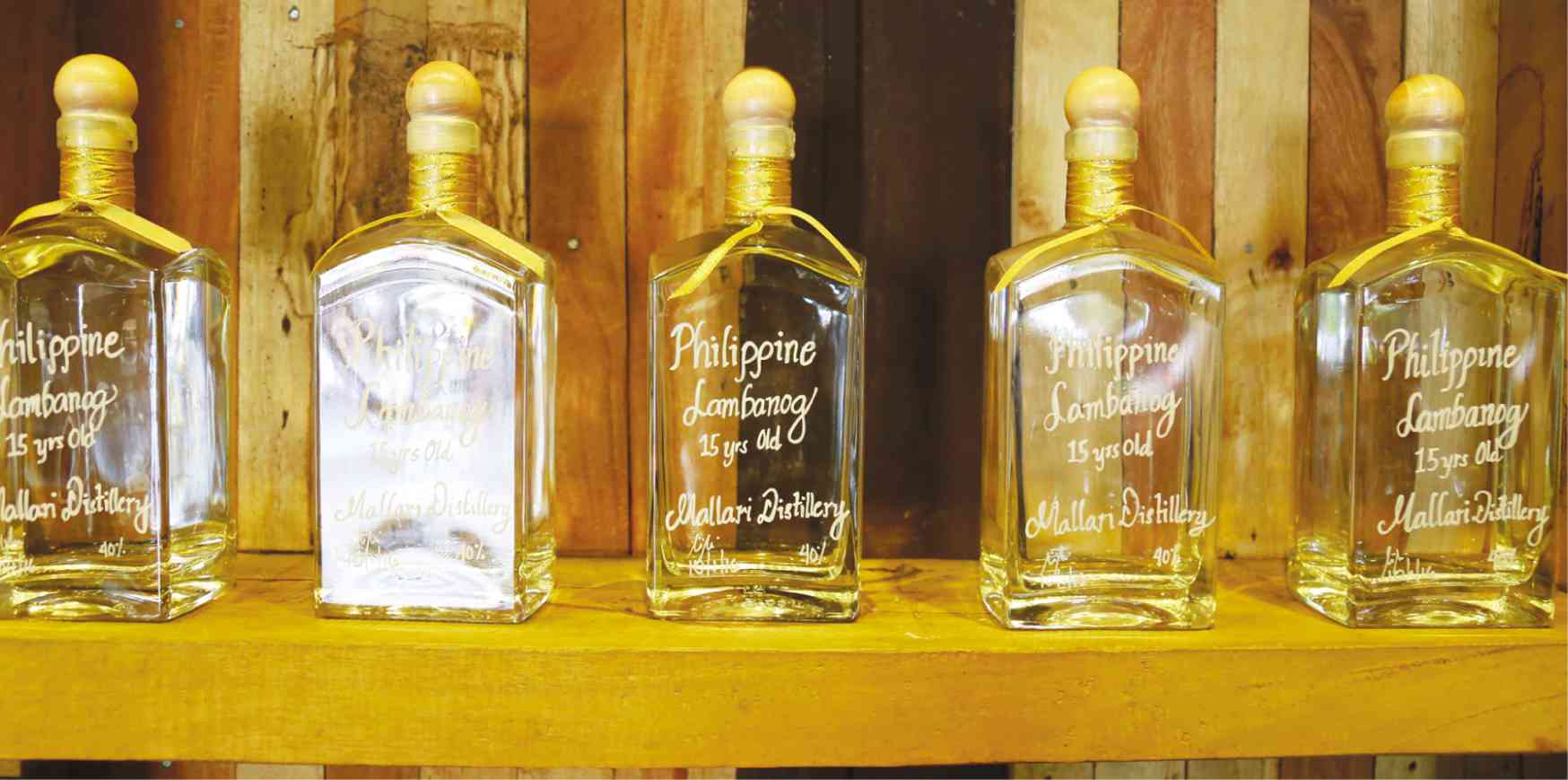Quezon wine makers hit hard by ‘lambanog’ deaths

GENUINE DRINK Licensed distillers of “lambanog” in Quezon province follow strict production standards to ensure the safety of this alcoholic drink that has reached markets abroad. —DELFIN T. MALLARI JR.
LUCENA CITY—Licensed distillers of “lambanog” (coconut wine) in Quezon province are expecting to lose at least 80 percent of their projected earnings in December, a peak season for the business due to the holidays, following cases of methanol poisoning and deaths attributed to the alcoholic drink.
“We’re losing big [due to] this year’s lambanog issue,” Joselito Mallari, owner of Mallari Distillery in Tayabas City, told the Inquirer.
Mallari did not cite figures but lambanog production is among the major income-generating enterprises in the city that hosts 18 licensed distillers.
On Saturday, Eduardo Janairo, Department of Health (DOH) regional director in Calabarzon (Cavite, Laguna, Batangas, Rizal and Quezon), reported that his office had confirmed 23 lambanog-related deaths in Quezon and Laguna since Dec. 22. About 500 people were taken to hospitals in the two provinces due to methanol poisoning after lambanog was offered in parties and other gatherings during the holidays.
Authorities suspected that the lambanog consumed by the victims was a mixture of toxic chemicals, among these methanol, and not a product of natural fermentation and distillation process followed by legitimate producers.
Article continues after this advertisementBut Mallari and other lambanog makers in Tayabas vowed to keep their distilleries running.
Article continues after this advertisementAppeal to gov’t
“We can’t afford to stop. So much is at stake, particularly [the welfare of] our workers who depend on us for a living,” he said, noting that they will continue production and sell their stocks once the situation has normalized.
“We can’t do anything except to continue calling the attention of the government to act decisively and stop this annual industry sabotage,” Mallari said.
In December 2018, lambanog that reportedly originated from a manufacturer and seller in Candelaria town in Quezon was blamed for the deaths of at least eight people in nearby Laguna province.
Mallari recalled that local and national government agencies like the DOH, Food and Drug Administration (FDA), the police and several local governments had promised to investigate these cases and punish the culprits.
“But if they really did, why a repeat of the incidents? Based on recent news reports, the same toxic methanol from fake lambanog is again [blamed for the latest deaths],” Mallari said.
Investigators traced the origin of the toxic lambanog to a coconut wine producer in San Juan town, Batangas province.
Mallari asked the police and local officials to identify the outlets of fake lambanog in their areas and stop their operations to prevent cases of poisoning.
“They should arrest, file cases and close their shops because what they are selling are illegal products. Without the required FDA approval, their lambanog is not safe to drink,” he said.
‘Cheap’
Mallari also advised lambanog drinkers to stop buying from these retailers, many of them sell the alcoholic drink out of huge plastic drums.
“It’s cheaper. But why gamble with your health and life?”
Mallari Distillery sells a gallon of lambanog for P350, which is P100 more than the price offered by unlicensed producers.
Mallari also sells vintage 20-year-old lambanog for P7,000 per 750-milligram bottle and P4,000 for a 15-year-old variety.
He said most legitimate distillers had penetrated foreign markets, particularly the United States.
But Mallari feared that if the controversy from the toxic lambanog would not die down, this would consequently affect their brand.
Mallari’s lambanog is exported to Asian and European countries under the brand, “Philippine Lambanog—distilled coconut wine.”
The public information office of Quezon has been issuing warnings about the danger of drinking lambanog that was not certified by the FDA. It also advised the public to buy lambanog only from legitimate sources.
Personnel of city and town police stations in Quezon inspected wine stores in their respective areas and confiscated containers of lambanog that had not been certified by the FDA.